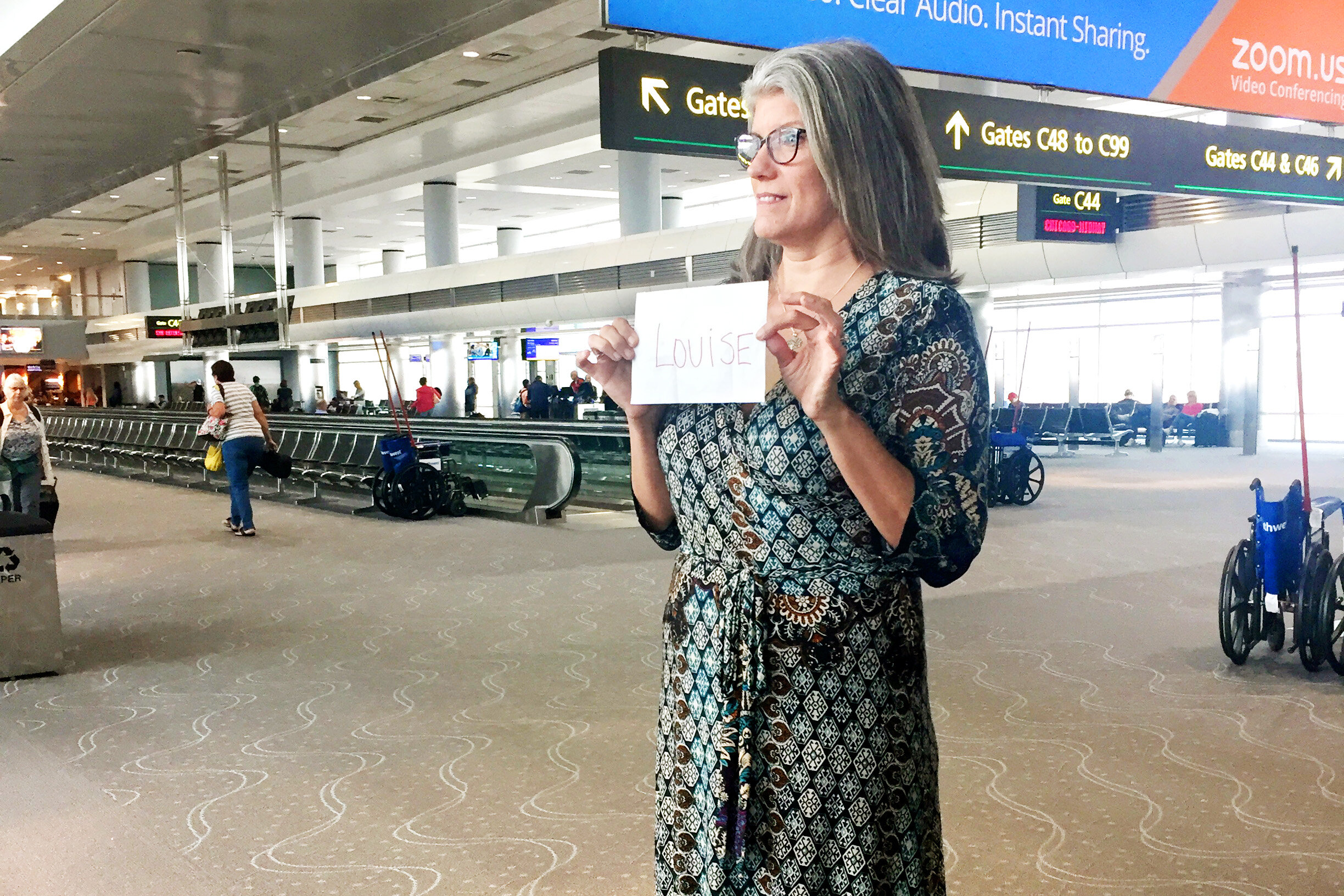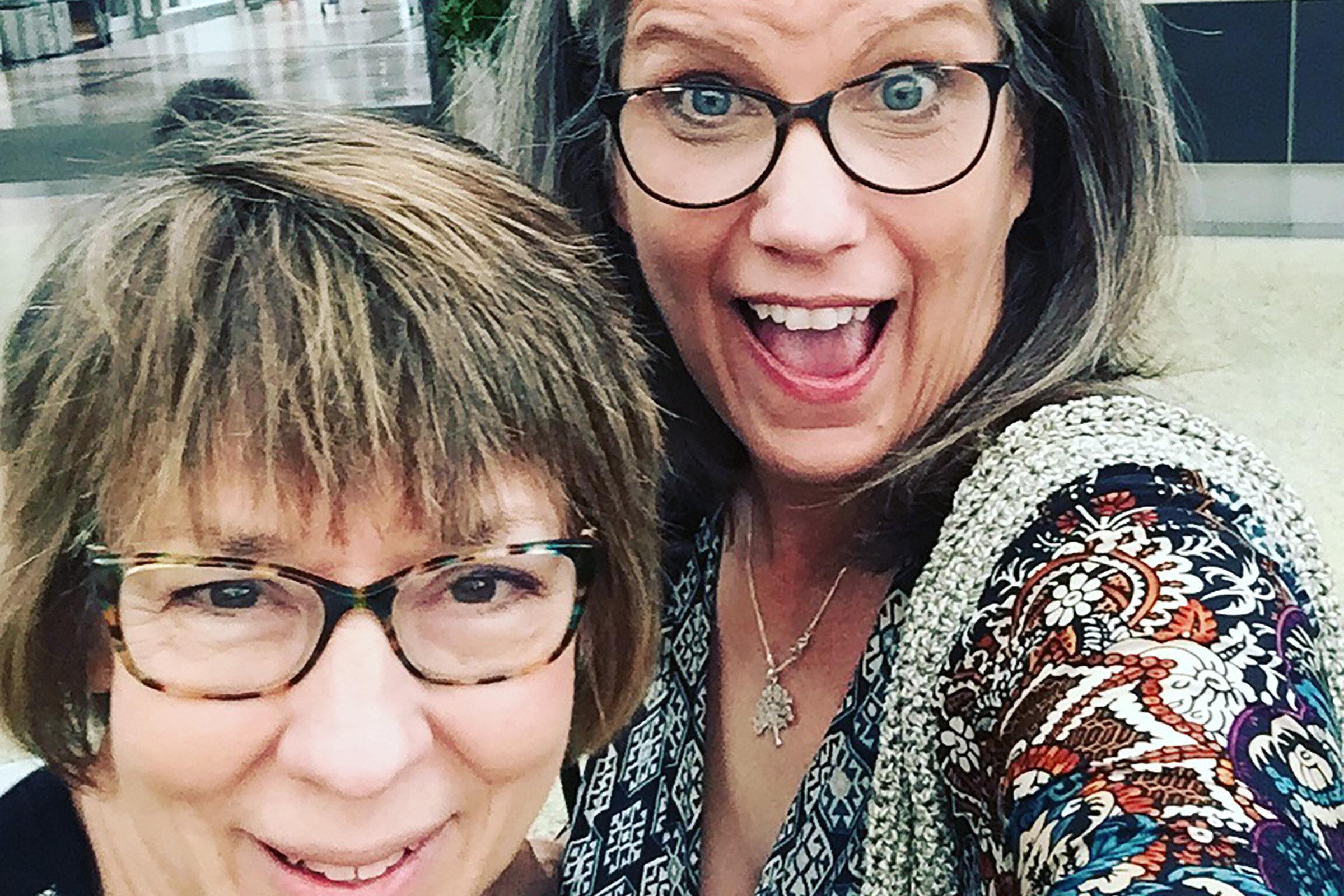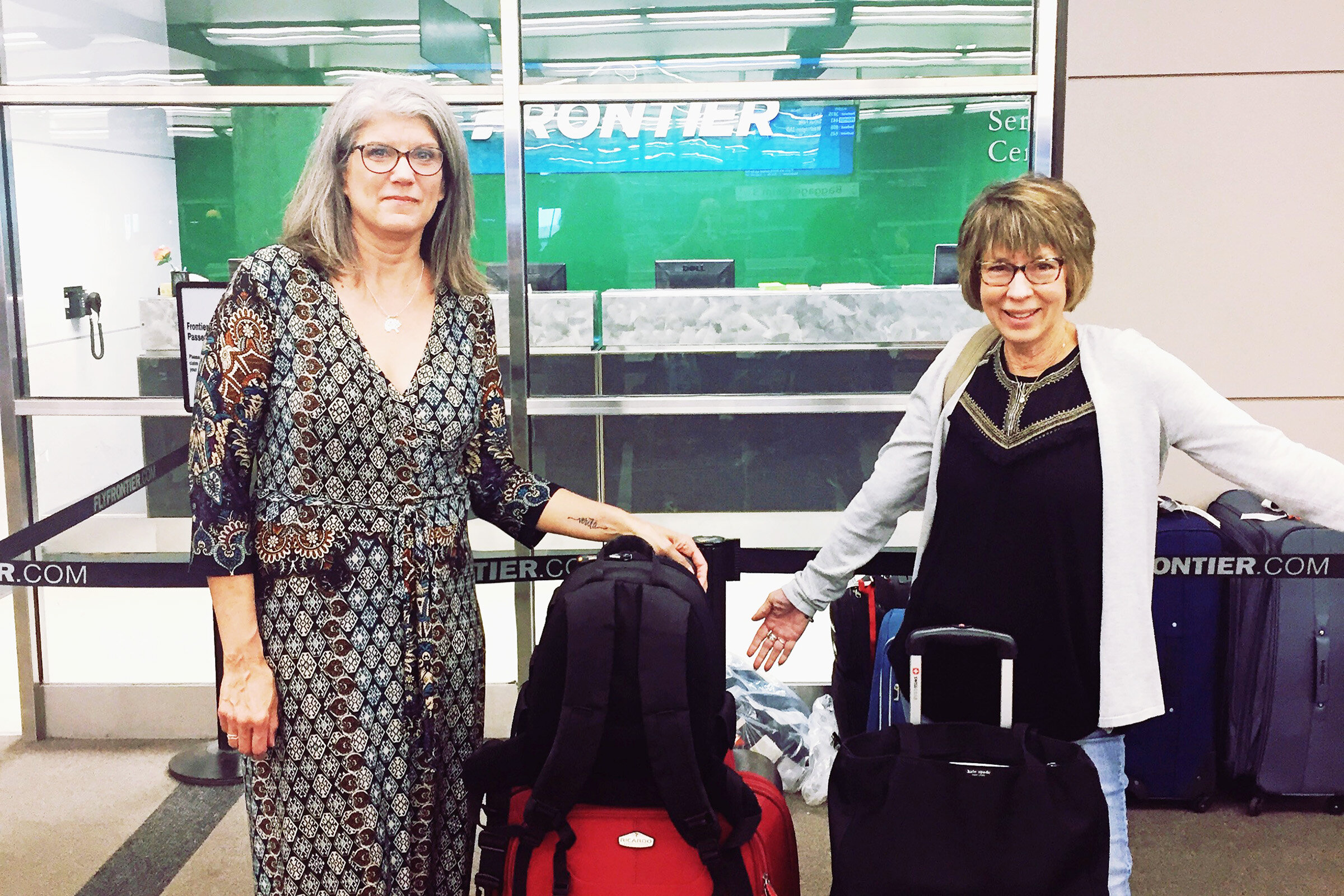Let's Go Retro :: Notes from under the divide
Guest post by Jan Stallones , with Laura Jenkins
Cal likes his beer over ice.
He also likes me.
This is not as simple as it sounds.
Like a lot of people, my friend Laura and I struggled to deal with the aftermath of the 2016 election. We’d talked a lot since November and every conversation always seemed to end with the same question:
“What will become of this growing divide in our country?”
Are things now so polarized and caustic that it’s no longer possible for people with opposing viewpoints to even see each other? Could political adversaries have meaningful conversations anymore? Neither of us had an answer to this. But that didn’t keep us from repeatedly asking the questions.
By the spring of 2017, public anger and division had grown, not receded. In early May Laura came across a NY Times article that suggested that perhaps the answer to our never-ending questions was to hit the road. What if we left our own political comfort zone and made it our goal to hang out with random strangers, specifically those who see the world completely different than we do? What if we listened to them, really listened, in an effort to close that gap—even by just an inch or two? As we discussed the possibility of actually doing this, we came up with a few ground rules:
1. Go to a geographic region that is known to be politically conservative (it’s no secret that the two of us lean left.) So we looked for places that were solidly in the red, so to speak. We decided on Wyoming and Idaho.
2. Talk to as many strangers as possible.
3. Refuse to bring up our own political beliefs, even though we feel them strongly.
4. Listen intently to other peoples’ lives.
5. Repeat.
Being the adventurists we are, two months later we found ourselves on separate planes to Denver—Laura traveling from Texas, me from Kentucky. After a few quick airport snapshots to commemorate that this was actually happening, we jumped in our rental car and headed towards Cheyenne. I did 98% of the driving. Laura was in charge of navigation and tunes. In one week’s time we would travel 2160 miles.
The route we plotted took us from small town to small town; we agreed to avoid large cities, chain restaurants and crowded tourist traps (National Parks excepted.) We researched local diners and watering holes along the way. We booked rooms in family-owned motels and places that would allow us to really mingle with locals and our fellow travelers. We even made a playlist.
In future blog posts we will be telling you about several wonderful people we met on this journey. But I decided to start with Cal because he is the one I just had to meet; was meant to meet. Our M.O. on this trip had been to wander around with no agenda or timeline, hoping to meet people who had a story to tell. One particular evening we took a walk in downtown Salmon, Idaho—all two blocks of it. It looked like a typical small western town, nothing too out of the ordinary. But suddenly a sign in a bar window caught my eye.
For us, this was the proverbial jackpot. It was not just a sign, it was the sign. We are both Subaru owners ( I’m the Outback, she has a Forester.)
“Look! They made a sign about us!” I said, pointing at the window.
Though we were both laughing, we also knew that they might not even let us in if they knew we were unapologetically independent, left-leaning hippies who support Obama and think healthcare should be affordable for all.
But since we were under a self-imposed political gag order, no one in this small town would ever never know.
As we stood on the sidewalk, smiling about the sign, out walked Cal, a slight, spry old man in worn coveralls. He had a long, white beard. With a glimmer in his eye, he suggested I take a picture of the sign.
“I just did!” I laughed.
We all just stood there smiling at each other.
“Can I buy you ladies a beer?” Cal finally asked.
The surge of excitement Laura and I felt could only be described as “giddy.” There we were, headed into the sketchiest bar in town (a designation the locals told us the next morning) with a stranger who—in all likelihood—was our exact political opposite. This could not be more perfect.
The waitress looked a little surprised to see Cal again because he’d just left. But apparently she knew him well. Without a word she set a beer and a glass of ice in front of him. As she popped the top off his favorite beer, he mentioned that he loved the sayings on the insides of the caps. I took this as a perfect way to start our conversation.
“Why do you love them?” I asked.
By this point we’d heard a lot of stories on the road, but all of them had been apolitical. In short, they weren’t difficult because there was no hint of conflict. We didn’t have to work to keep our mouths shut. We didn’t have to practice listening to someone we knew we had fundamental differences with. And just like that Cal changed all of that. He began to curse the government: Clinton, Obama, his state and local representatives (many of which were Republican and Mormon.) And then he declared defiantly that Trump was going to fix it all. He threw it down like a gauntlet. His anger was so intense I had no idea how to respond. Our charming host had suddenly turned quite uncharming, and I wanted to escape his rage. I looked over at Laura, hoping to cue an exit. She was calmly looking at Cal, so I took a deep breath, swallowed a sip of my beer and leaned forward.
“Sounds like you are really angry,” I said. “What are you mad about?”
Turns out Cal is a war hero. He fought in WWII, Korea, and French Indochina. He lied about his age to get into the army, as many young men did at the time. He was wounded twice, severely, and kept going back. As a result he still has plaguing problems from those injuries, as as well as some chronic heart issues.
“It takes 70 days to get an appointment with the VA,” he said, “and at that point all I get is a physician’s assistant, worth about as much as tits on a boar hog.”
Though he was clearly frustrated, his spark and humor kept flashing back into the conversation like a flickering light. When we laughed with him, his eyes twinkled a little more. We could tell it wasn’t often that two strangers offered to sit down and listen to his life.
At one point he told us that he’d traveled to a hospital in Montana, just to have the pacemaker he needed denied. We asked him what happened then, and he shrugged and said the doctors put it in anyway.
But Cal’s struggles didn’t end there.
He told us about his life – about courting and marrying his wife. He showed us the medals on his battered hat - the Ruptured Duck, his Army retirement pin. He told us about raising six kids in a house heated by one wood stove, which gave him COPD because it was manufactured with asbestos.
And then he matter-of-factly told us about losing one of his sons earlier that year. When Laura asked him how he was coping, he gave a little shrug and replied,
"Let me put it this way… I'm tryin'."
(We'd hear this often after his slight shrugs.)
Cal shared his fears about terrorism and North Korea. And he was quick to tell us exactly where he places the blame for both—namely at the feet of some of the people and institutions Laura and I respect. He repeated a few extremist conspiracy theories as though they were fact—we said nothing. He told us about how he earned his GED and how he’d gone to work for General Motors after his military service. He proudly informed us that he was once known as the number one mechanic in the state. Beyond learning a lot about Cal, we all laughed a lot. He was whip quick and funny as hell.
Toward the end of our conversation, things turned serious again when I asked him if he was glad he'd served. He paused, gave me a "let me put it this way," look and quietly said,
“I’m not sure anymore.” The look on his face was heartbreaking, disarming. In that instant he looked like a bewildered child.
“Why?” I asked.
"Just look at the country - look at how I'm treated!” he replied, anger smoldering beneath the surface. By this time the dialog had taken on a certain cadence, a rhythm of listening (us), biting tongues (us), vigorous laughter and stunning glimpses into our common condition:
The human one.
Cal’s shuffle between wonder, frustration and heartbreak mirrored our own.
It was an awkward moment. I struggled to think of something meaningful to say. Neither Laura nor I had ever served in the military. We didn’t know what it was like to get caught in a system that sometimes abandoned the people who risked their lives for it. Finally, I spoke.
“I want to thank you for your sacrifice, for your service and your courage,” I said, looking directly into his eyes.
And just like that, something in him softened. I've thanked veterans before, but this was different. It was personal. By now I felt real love for this man. Cal stopped talking for the first time since we’d sat down together. He shrugged his thin shoulders and teared up. We all did.
The bartender came over to close out the tab and Cal pulled a crisp fifty out of his wallet to settle up. We tried to take the check, but he wasn’t interested.
"I told you ladies I was going to buy you a beer, and I am."
We all walked outside and Cal got the bartender to come out and take some pictures. He also wanted to make sure I’d gotten a shot of the sign in the window.
“I do drive a Subaru,” I confessed.
“It’s ok," he laughed.
And with that he handed me his bottle cap.
When Cal turned to walk home, we headed the opposite direction towards our car. Laura broke the stunned silence between us when we were finally out of earshot.
“What just happened?” she asked.
“I don’t know” I exclaimed, loudly. “All I know is that I just met someone who vehemently opposes a lot of what I believe and hold dear. And I love him!”
I’m pretty sure I’ll never see Cal again. By now he is 91—that is, if he’s still with us. But I’m absolutely certain of this: I'll never forget him. Laura and I spent less than an hour with this random stranger and we were able to get under the divide by talking less and listening more. As it turns out, it’s really hard to make someone an enemy when you’ve shared a moment of humanity. Once he got to know us, he didn’t even care that we drove Subarus.
Hey — it’s a start.








